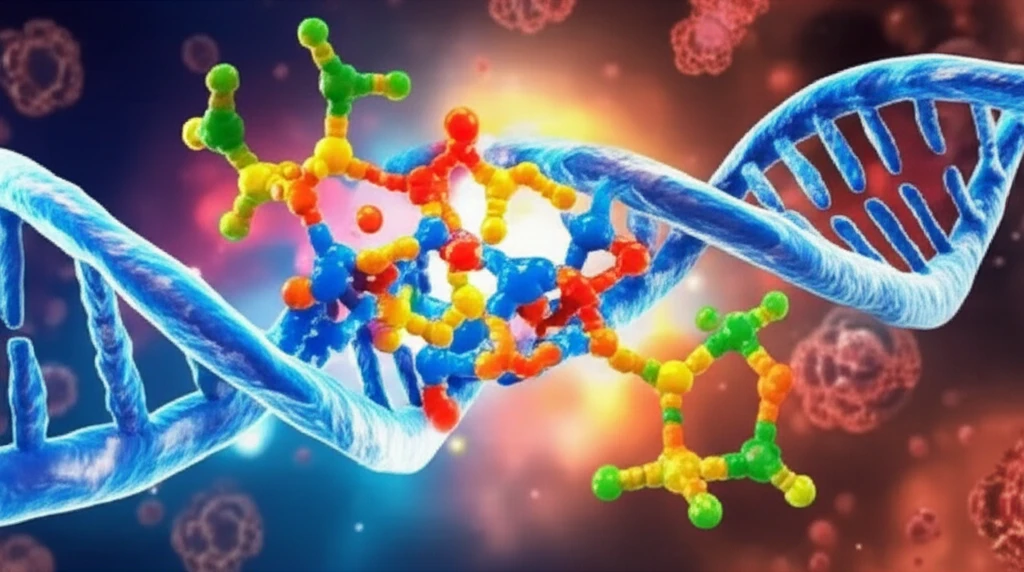
Can This Natural Compound Stop Colon Cancer in Its Tracks? The Alpinumisoflavone Breakthrough
"New research highlights the potential of alpinumisoflavone, a natural compound, in combating colorectal cancer by disrupting DNA repair mechanisms."
Colorectal cancer (CRC) remains a significant global health challenge, accounting for a substantial portion of cancer-related deaths worldwide. While current treatment options like surgery, chemotherapy, and radiotherapy offer some benefits, advanced CRC continues to have a high mortality rate, underscoring the urgent need for new therapeutic approaches.
In the search for innovative cancer treatments, researchers are increasingly turning to natural compounds for their potential therapeutic properties. One such compound, alpinumisoflavone (AIF), derived from the traditional Chinese herb D. eriocarpa, has shown promise in preclinical studies. This article delves into the groundbreaking research exploring AIF's ability to combat colorectal cancer by disrupting a critical DNA repair mechanism.
Recent studies have uncovered AIF's ability to induce DNA damage in colorectal cancer cells by targeting RAD51, a protein crucial for DNA repair. By blocking RAD51's function, AIF may prevent cancer cells from repairing damaged DNA, ultimately leading to cell death. This article examines the evidence supporting AIF's potential as a novel therapeutic agent for colorectal cancer.
Alpinumisoflavone: A Natural Disruptor of DNA Repair in Cancer Cells

The study, conducted using colorectal cancer cell lines (HCT-116 and SW480), revealed that AIF effectively inhibited CRC cell proliferation and promoted apoptosis (programmed cell death) in a dose-dependent manner. This means that higher concentrations of AIF led to a greater reduction in cancer cell growth and increased cell death.
- Inhibition of RAD51: AIF was found to significantly reduce the levels of RAD51 protein in CRC cells.
- Increased DNA Damage: The reduction in RAD51 led to an accumulation of DNA double-strand breaks, as evidenced by an increase in γ-H2AX foci, a marker of DNA damage.
- Enhanced Apoptosis: By preventing DNA repair, AIF triggers apoptosis in cancer cells, effectively eliminating them.
A Promising New Avenue for Colorectal Cancer Therapy
These findings suggest that alpinumisoflavone holds significant potential as a novel therapeutic agent for colorectal cancer. By targeting RAD51 and disrupting DNA repair, AIF may offer a new approach to combating this deadly disease.
While these results are promising, further research is needed to fully understand AIF's effects and optimize its use in cancer treatment. Clinical trials are necessary to evaluate AIF's safety and efficacy in humans.
The discovery of AIF's anti-cancer properties highlights the importance of exploring natural compounds as a source of new drugs. With continued research, AIF could one day become a valuable tool in the fight against colorectal cancer.
